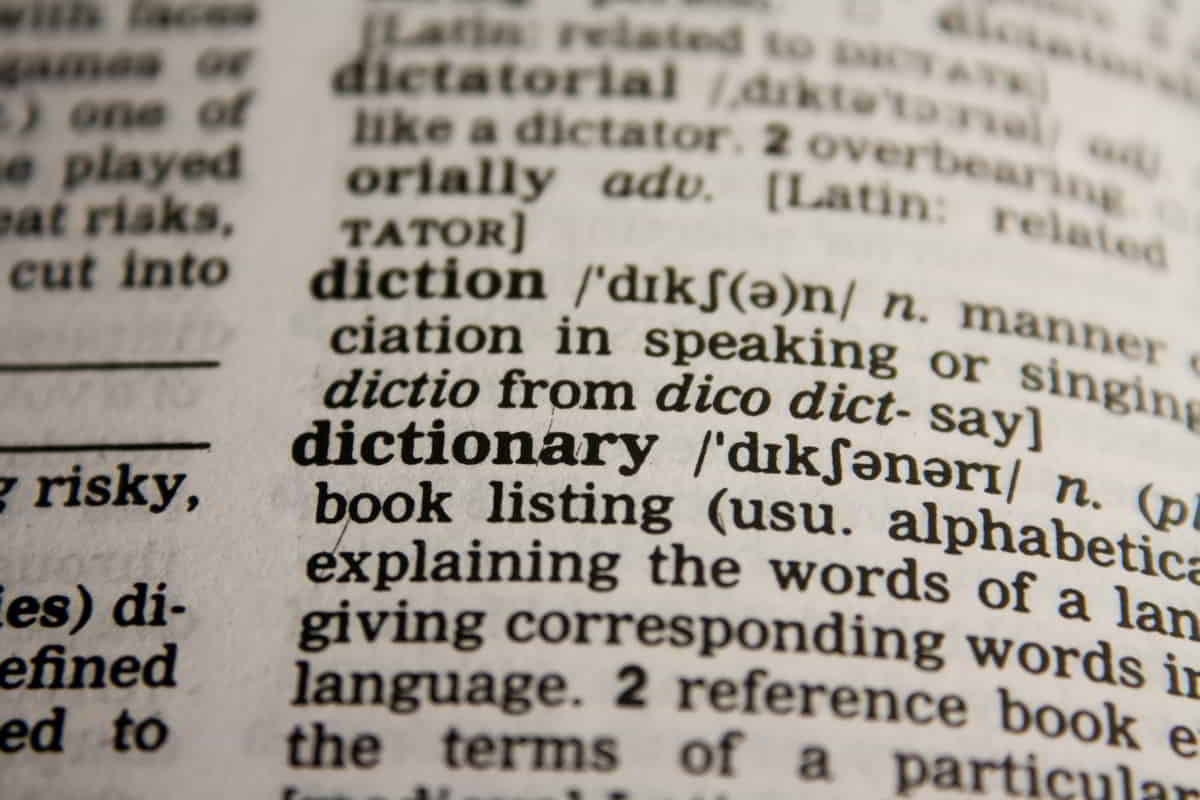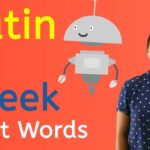To help you or your student(s) learn new vocabulary words and their meanings through reading comprehension, in this resource article we provide 152 worksheets, exercises, lists, template tools, and strategies, along with some excellent online worksheets, workbooks and exercises.
A student’s vocabulary is the foundation of reading comprehension. Knowing the meaning of most words in a text is crucial for grasping its message. Strong vocabulary allows them to visualize words quickly, making reading a more fluid and enjoyable experience. The “learning vocabulary with reading comprehension” documents below are for advanced 3rd graders through high school students, while the “reading comprehension worksheets” are aimed at students in grades 3–8. All files are in pdf format.
Quick Links to Vocabulary and Reading Comprehension Resources in this Article:
- Why Learn Vocabulary Along with Reading Comprehension
- Combining VocabularyWorksheets and Reading Comprehension Tasks
- Learning Vocabulary with Reading Comprehension Resources
- Reading Comprehension Worksheets
Why Learn Vocabulary Along with Reading Comprehension
Learning vocabulary alongside reading comprehension activities is like pouring gasoline on a learning fire—it fuels understanding, ignites critical thinking, and opens doors to new worlds of information. Here’s why it’s such a powerful combo, with some examples to spark your imagination:
- Unlocking Meaning: Encountering unfamiliar words in context, like “murky” in “The intrepid explorer trekked through the murky swamp,” triggers deeper understanding of their meaning, connotation, and contribution to the story’s atmosphere.
- Building Bridges: Vocabulary words and their meanings act as stepping stones for reading comprehension. The more words you know, the smoother the crossing. Activities like creating mini-dictionaries solidify these bridges for future encounters.
- Deepening Analysis: Understanding words like “scrupulously” in historical passages adds depth to comprehension. Activities comparing contrasting words encourage critical thinking and nuanced interpretation.
- Expanding Expression: Vocabulary enriches writing. Activities like rewriting stories using new words empower students to express themselves with greater precision and creativity.
- Confidence Booster: Navigating complex texts with a strong vocabulary toolkit fuels accomplishment and motivates further exploration.
Combining VocabularyWorksheets and Reading Comprehension Tasks
While vocabulary worksheets and reading comprehension tasks have individual benefits, combining them provides students with an even greater advantage in their academic development. Here’s why:
- Reinforces Vocabulary in Context: Worksheets often present vocabulary words in isolation, but reading comprehension tasks embed them within a meaningful context. Students see how the words function in sentences and paragraphs, solidifying their understanding and application.
- Provides Practice and Application: Worksheets offer controlled activities like matching definitions, filling in blanks, or creating sentences. These exercises provide essential practice for using the new vocabulary actively and correctly.
- Checks for Comprehension: Comprehension tasks assess whether students truly understand the meaning and usage of the target vocabulary. This feedback allows teachers to identify areas that need further clarification or practice.
- Encourages Active Learning: Worksheets make learning engaging and stimulate students to think critically about the vocabulary.
- Differentiates Instruction: Worksheets can be tailored to different learning styles and abilities. For example, visual learners can benefit from diagrams or illustrations, while kinesthetic learners might enjoy role-playing activities.
- Provides Additional Resources: Worksheets can complement other learning activities like class discussions, presentations, or independent research. This creates a multifaceted learning experience that caters to diverse learning preferences.
Remember, it’s not just about memorizing definitions. It’s about actively engaging with words, making connections, and using them in meaningful ways. Vocabulary activities and engaging in the lessons and exercises below can help ignite this process, turning dry definitions into dynamic tools for reading comprehension and expression. Remember, the recipe for strong reading skills requires a generous sprinkle of vocabulary!
Learning Vocabulary with Reading Comprehension Resources
- 11 Vocabulary Building Activities
- 1148 Vocabulary Words with Definitions
- 30 Vocabulary Practice Worksheets
- 366 Vocabulary Words.html (download to use)
- 4000 Simple Word Families
- 5000 Vocabulary Words with Definitions
- 70 Sight Word Vocabulary Fluency Lists
- A Routine for Introducing a New Vocabulary Word
- Academic Vocabulary Building Activities
- Before and After Reading Vocabulary Template
- Commonly Confused Words
- Context Clues How To
- Expanding Vocabulary through a Word Window
- Frayer Model Explained with Examples
- Frayer Model Instructions with Template Cards
- Fun With New Words
- Graphic Organizers for Reading Comprehension
- Guiding Comprehension – Teaching for Meaning
- Improving Vocabulary through a Synonym Search
- KIM Vocabulary Strategy Template
- KWL Interactive Vocabulary Graphic Organizer
- Metaphors and Similes Exercise
- Nonfiction Reading Comprehension and Vocabulary, High School
- Own the Word Vocabulary Template
- Reading Comprehension – Building Vocabulary, Grades 4-5
- Reading Comprehension – Vocabulary in Poetry, Grades 4-5
- Reading Comprehension – Vocabulary in Tom Sawyer, Grades 3-6
- Reading Comprehension and Vocabulary – Adolescents Sleep Article
- Reading Comprehension and Vocabulary – Family Global Flight WSJ
- Reading Comprehension and Vocabulary – NYT Garment Article
- Reading Comprehension and Vocabulary – Rest Its Required
- Reading Comprehension and Vocabulary – Sleep Patterns
- Reading Comprehension and Vocabulary – Sleepless In America
- Reading Comprehension and Vocabulary – The Gift of the Magi
- Reading Comprehension and Vocabulary Exercises – Battle of Brooklyn
- Reading Comprehension and Vocabulary Exercises – Its Alright Exercises
- Reading Comprehension and Vocabulary Exercises – Muhammad Ali
- Reading Comprehension and Vocabulary Exercises – Shark Attack
- Reading Comprehension and Vocabulary Exercises – The Battle
- Reading Comprehension and Vocabulary Exercises – The Great Escape
- Reading Comprehension and Vocabulary Exercises – Were Coming Up
- Reading Comprehension and Vocabulary Exercises – Wild Ride
- Reading Comprehension Tests with Answer Key, Grades 2-10
- Reading Comprehension with Vocabulary – Perseverance
- Teaching Word Parts
- Unit 1 Reading with Vocabulary Exercises – Who Am I
- Unit 2 Reading with Vocabulary Exercises – Grandmas Wisdom
- Unit 3 Reading with Vocabulary Exercises – Bonding With Grandma
- Unit 4 Reading with Vocabulary Exercises – Pepfull Rally
- Unit 5 Reading with Vocabulary Exercises – I Dont Dance
- Unit 6 Reading with Vocabulary Exercises – Squirrel
- Unit 7 Reading with Vocabulary Exercises – Crash Course
- Unit 8 Reading with Vocabulary Exercises – Hooked On Fishing
- Unit 9 Reading with Vocabulary Exercises – Back Home
- Unit 10 Reading with Vocabulary Exercises – A Broken Dream Restored
- Unit 11 Reading with Vocabulary Exercises – Assumptions
- Unit 12 Reading with Vocabulary Exercises – No Place To Go
- Unit 13 Reading with Vocabulary Exercises – View from the Other Side
- Unit 14 Reading with Vocabulary Exercises – The Test
- Unit 15 Reading with Vocabulary Exercises – The Mess
- Verbal and Visual Word Association Template with Example
- Vocabulary Chart Guidelines and Blank Chart Template
- Vocabulary Games
- Vocabulary Lesson 1 for Middle School
- Vocabulary Lesson 2 for Middle School
- Vocabulary Lesson 4 for Middle School
- Vocabulary Lesson 5 for Middle School
- Vocabulary Lesson 6 for Middle School
- Vocabulary Lesson 7 for Middle School
- Vocabulary Lesson 8 for Middle School
- Vocabulary Lesson 9 for Middle School
- Vocabulary Lesson 10 for Middle School
- Vocabulary Lesson 11 for Middle School
- Vocabulary Lesson 12 for Middle School
- Vocabulary Lesson 13 for Middle School
- Vocabulary Lesson 14 for Middle School
- Vocabulary Lesson 15 for Middle School
- Vocabulary Lesson 16 for Middle School
- Vocabulary Lesson 17 for Middle School
- Vocabulary Lesson 18 for Middle School
- Vocabulary Lesson 19 for Middle School
- Vocabulary Lesson 20 for Middle School
- Vocabulary List and Exercises Packet 1
- Vocabulary List and Exercises Packet 2, with Answer Key
- Vocabulary List and Exercises Packet 3, with Answer Key
- Vocabulary Rating Comprehension Strategy Tools
- Vocabulary Self-Awareness Instructions with Template
- Vocabulary Self Awareness Template
- Vocabulary Workbook (39 pages)
- Word Detective Worksheet with Example
- Word Knowledge Rating Scale Templates
Online Resources for Learning Vocabulary with Reading Comprehension
- Vocabulary and Word Study Worksheets from Mrs. Reed’s Classroom (Grades 4-9)
- 11 Wordly Wise Vocabulary Lessons, Middle School
- 25 Vocabulary Exercises with Reading Comprehension Worksheets
- Vocabulary and Reading Comprehension Workbook
- 8th Grade Reading Comprehension and Vocabulary with Answer Key
- 180 Essential Vocabulary Words Workbook for 6th Grade
- 240 Vocabulary Words Workbook for 6th Grade
- 5th Grade Reading Comprehension with Answer Key
- 180 Essential Vocabulary Words Workbook for 5th Grade
- 240 Vocabulary Words Workbook for 5th Grade
- Vocabulary Workshop, Grades 4-6
- The Academic Word List
- English Vocabulary Test with Answers, all Grades
- Vocabulary Workshops, Levels: Grades 1-5 (webpage)
- Vocabulary Workshops, Levels: Grades 6-10 (webpage)
- Middle School Vocabulary and Literature Workbooks, Unit 4
- Middle School Vocabulary and Literature Workbooks, Unit 5
Reading Comprehension Worksheets
- Reading Comprehension – Analyzing Characters, Grades 2-4
- Reading Comprehension – Analyzing Characters, Grades 3-4
- Reading Comprehension – A Day At The Beach, Grades 3-5
- Reading Comprehension – Cause and Effect, Grades 3-5
- Reading Comprehension – Compare and Contrast 1, Grades 3-4
- Reading Comprehension – Compare and Contrast 2, Grades 3-4
- Reading Comprehension – Drawing Conclusions 1, Grades 3-4
- Reading Comprehension – Drawing Conclusions 2, Grades 3-4
- Reading Comprehension – Elements of a Story, Grades 3-5
- Reading Comprehension – Fact And Opinions, Grades 3-5
- Reading Comprehension – Making Inferences, Grades 3-4
- Reading Comprehension – Retelling a Story, Grades 3-5
- Reading Comprehension – Stories Worksheet, Grades 3-5
- Reading Comprehension – Tasks for Grades 3-4
- 5th Grade Reading Skills Terms
- 6th Grade Reading Skills Terms
- Clean by Design Video Listening Comprehension Exercise
- Inferences from Pictures, Grades 5-6
- Literal Comprehension Overview
- Pre-Reading Worksheet
- Reading Comprehension – A Great Painter, Grades 4-5
- Reading Comprehension – Analyzing Characters Grades 5-7
- Reading Comprehension – Appreciating Poetry, Grade 5
- Reading Comprehension – Appreciating Poetry, Grades 5-8
- Reading Comprehe
- Reading Comprehension – Compare and Contrast 1, Grades 4-5
- Reading Comprehension – Compare and Contrast 2, Grades 4-5
- Reading Comprehension – Context Clues 1, Grades 4-6
- Reading Comprehension – Context Clues 2, Grades 4-6
- Reading Comprehension – Context Clues, Grades 5-6
- Reading Comprehension – Cultural Differences, Grades 6-8
- Reading Comprehension – Drawing Conclusions Poem, Grades 5-7
- Reading Comprehension – Drawing Conclusions, Grade 6
- Reading Comprehension – Elements of a Story 1, Grades 4-5
- Reading Comprehension – Elements of a Story 2, Grades 4-5
- Reading Comprehension – Elements of a Story, Grade 6
- Reading Comprehension – Fact and Opinion, Grade 5
- Reading Comprehension – Following Directions, Grades 4-5
- Reading Comprehension – Franz Schubert, Grades 4-5
- Reading Comprehension – Main Idea 1, Grades 4-5
- Reading Comprehension – Main Idea 2, Grades 4-5
- Reading Comprehension – Making Inferences 1, Grades 5-6
- Reading Comprehension – Making Inferences 2, Grades 5-6
- Reading Comprehension – Making Predictions Tom Sawyer, Grades 5-7
- Reading Comprehension – Martin Luther King Jr, Grades 5-8
- Reading Comprehension – Questioning, Grades 4-6
- Reading Comprehension – Retelling a Story, Grade 6
- Reading Comprehension – Rumpelstiltskin, Grades 5-8
- Reading Comprehension – Sequencing Grades 4-5
- Reading Comprehension – Summarizing Worksheet, Grade 6
- Reading Comprehension – Summarizing 1, Grades 4-5
- Reading Comprehension – Summarizing 2, Grades 4-5
- Reading Comprehension – Summarizing, Grade 6
- Reading Comprehension – The Sunbeam Poem, Grades 5-8
- Reading Comprehension – A Wrestler with No Legs
- Reading Comprehension Strategies (112 pages)
- Reading Comprehension Strategy Checklist
- Reading Comprehension Strategy Connecting
- Reading Comprehension Strategy Inner Conversation
- Reading Comprehension Practice Test with Answer Key, Grades 2-10
- Telling the Main Points of a Nonfiction Article
Reading Comprehension Resources Online
- 501 Reading Comprehension Questions with Answers
- 1000 Reading Comprehension Questions with Answers
- 3rd-4th Grade Long Reading Passages with Questions and Answer Key
- Reading Comprehension Worksheets from Mrs. Hart’s Classroom (Grades 4-7)
- Daily Reading Comprehension Workbook, with Answer Key, Grades 6-8
- Reading Comprehension Passages: Questions with Answers, from Englishforeveryone
- Reading Comprehension Worksheets, Grade 3 Fiction from Readingeggs
- Reading Comprehension Worksheets, Grade 4 Fiction, from Readingeggs
- Reading Comprehension Worksheets, Grade 5 Fiction, from Readingeggs
- Reading Comprehension Worksheets, Grade 5 Non-Fiction, from Readingeggs
- Reading Comprehension Worksheets, Grade 6 Fiction, from Readingeggs
-love learning -your best ed lessons guide, Scott




